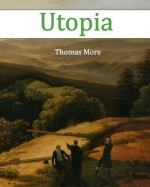|
This section contains 6,429 words (approx. 22 pages at 300 words per page) |

|
SOURCE: "Varieties of Literary Utopias," in Utopias and Utopian Thought, edited by Frank E. Manuel, Houghton Mifflin Company and the American Academy of Arts and Sciences, 1965, pp. 25–49.
In the following excerpt from an essay first published in the Spring, 1965 issue of Daedalus, Frye discusses common characteristics of utopian literature, emphasizing the importance of ritual, the Christian tradition, and education.
There Are two social conceptions which can be expressed only in terms of myth. One is the social contract, which presents an account of the origins of society. The other is the utopia, which presents an imaginative vision of the telos or end at which social life aims. These two myths both begin in an analysis of the present, the society that confronts the mythmaker, and they project this analysis in time or space. The contract projects it into the past, the utopia into the future or some distant...
|
This section contains 6,429 words (approx. 22 pages at 300 words per page) |

|


